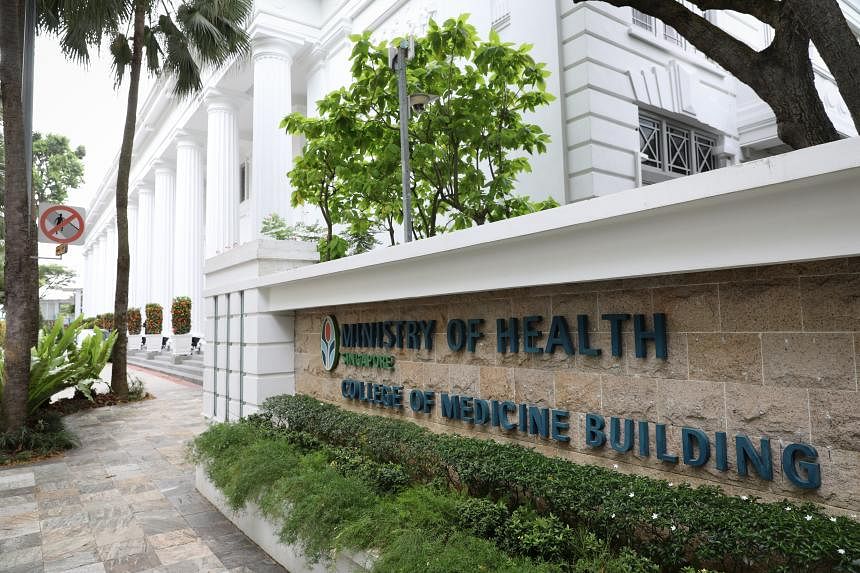SINGAPORE - A case of more than $95,000 in overcharging, inappropriate treatments, cosmetic surgery disguised as treatments – these are some recent cases involving inappropriate MediShield Life claims by doctors.
A claims management office that was set up to pick up such cases involving MediShield Life – a mandatory health insurance plan that helps Singaporeans pay for large bills in B2 and C wards – has uncovered 29 cases of inappropriate claims involving 10 doctors since October 2022, said the Ministry of Health (MOH) on Tuesday.
It is now looking at 70 more cases, and stepping up scrutiny of some doctors.
The 29 earlier cases involve about $400,000 in inappropriate claims.
One of these involved an estimated $95,000 of inappropriate claims, after the doctor submitted an inflated claim for surgery to remove a tumour from a patient with stomach and intestinal cancer, said MOH.
A panel reviewing the claim found that while the surgery was medically appropriate, charges had been inflated through the use of multiple overlapping surgical codes. This was not only inappropriate but could also result in higher bills for the patient, leading to additional out-of-pocket payments and unnecessary MediSave withdrawals, MOH said.
Another case involved more than $5,600 of wrongful claims, when a doctor performed cross-linking surgery – a two-step procedure – on a patient with blurry vision and long-sightedness. The panel found that the patient had cataracts and should have been treated with cataract surgery, instead of the cross-linking surgery. The patient was thus exposed to unnecessary medical risks.
In another case, a private-sector doctor submitted more than $10,000 in inappropriate claims for the repair of ptosis, or “droopy eyelids”, but the criteria for the condition affecting visual function were not fulfilled, the panel found.
There was no photo evidence of droopy eyelids. It thus concluded that the surgery was done for cosmetic reasons.
In a fourth case, a patient who had abdominal pain and a mass in the lower area of the stomach had fibroid removal surgery. Tests done had revealed non-cancerous fibroids and a polyp in the uterus, and ultrasounds of the ovaries had shown that the patient had normal ovarian follicles.
When the doctor performed the surgery, he went ahead to remove a small “ovarian cyst” that was found, even though scans done before the surgery had shown that it was a normal ovarian follicle.
MOH said the new office is part of various efforts, including the development of fee benchmarks and regular surveillance audits, made to manage healthcare costs.
Together, these will moderate the escalation of healthcare costs and help ensure that Singaporeans can continue to use MediShield Life funds to protect against large bills while keeping premiums affordable, it said.
The new office is also developing claims rules to guide doctors on appropriate claims.
The first set for gastrointestinal endoscopy was released in August 2022. Two more sets of claims rules were released in September 2023, for ear, nose and throat and cardiology. More will follow.
Patients involved in cases of inappropriate claims do not have to pay, as the doctor or medical institution is required to rectify the claim, said MOH. They are not allowed to recover the claim from the patient.
The doctors in the first 29 cases processed by the office were warned and educated on what can and cannot be claimed, as enforcement actions were put in place only from April 2023.
MOH will take action against new cases of repeat offenders found to have made inappropriate claims. This will start with a warning, followed by a warning and mandatory training.
The third case will lead to a six-month suspension of the right to submit MediShield Life claims for patients, and the doctor’s name will be published on the MOH website. If there is a fourth case, the doctor’s right will be revoked, and he would need to reapply for accreditation after two years.
Dr Wong Chiang Yin, the master-elect and assistant master (administrative affairs) at the Academy of Medicine, Singapore, said that in a large group involving hundreds, if not thousands, of doctors, there will be an errant few who unfortunately may need to be reprimanded.
“Claims can be wrongly made by doctors and claims can also be wrongly denied by insurers,” he pointed out.
“We also hope that MAS (the Monetary Authority of Singapore), empowered as the Authority under the Insurance Act to regulate insurers, will similarly take active steps and make a serious effort to educate insurers so that unreasonable denial of claims can be prevented.”
Likewise, MAS can also take punitive action against insurers that unreasonably deny claims repeatedly, he added.
Singapore Medical Association (SMA) president Ng Chee Kwan said that with the claims management process in place, insurers can be assured that the number of inappropriate claims will be reduced. Therefore, there is no reason for insurers to limit the number of doctors on the panel, as they now do.
“SMA calls for insurers to either open up their panels for more eligible specialists to join, or choose not to have panels of doctors altogether,” he said. This would benefit doctors and patients, he added.


